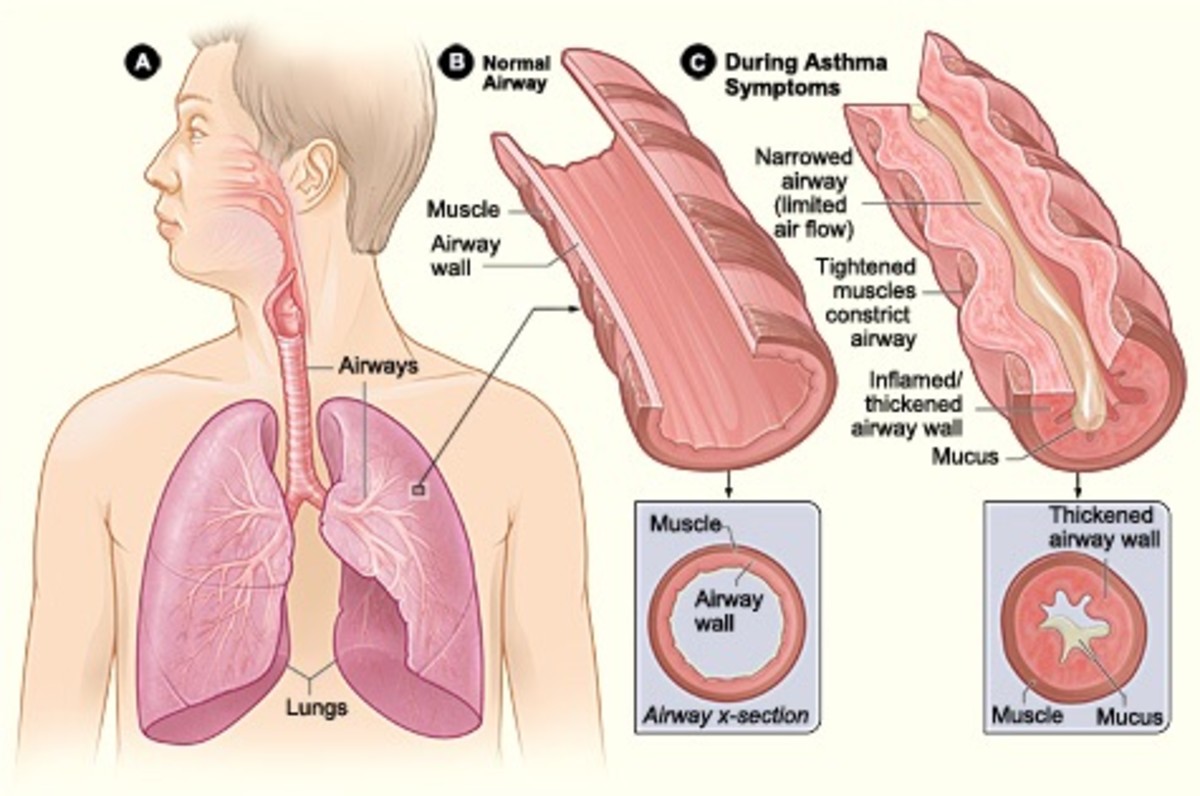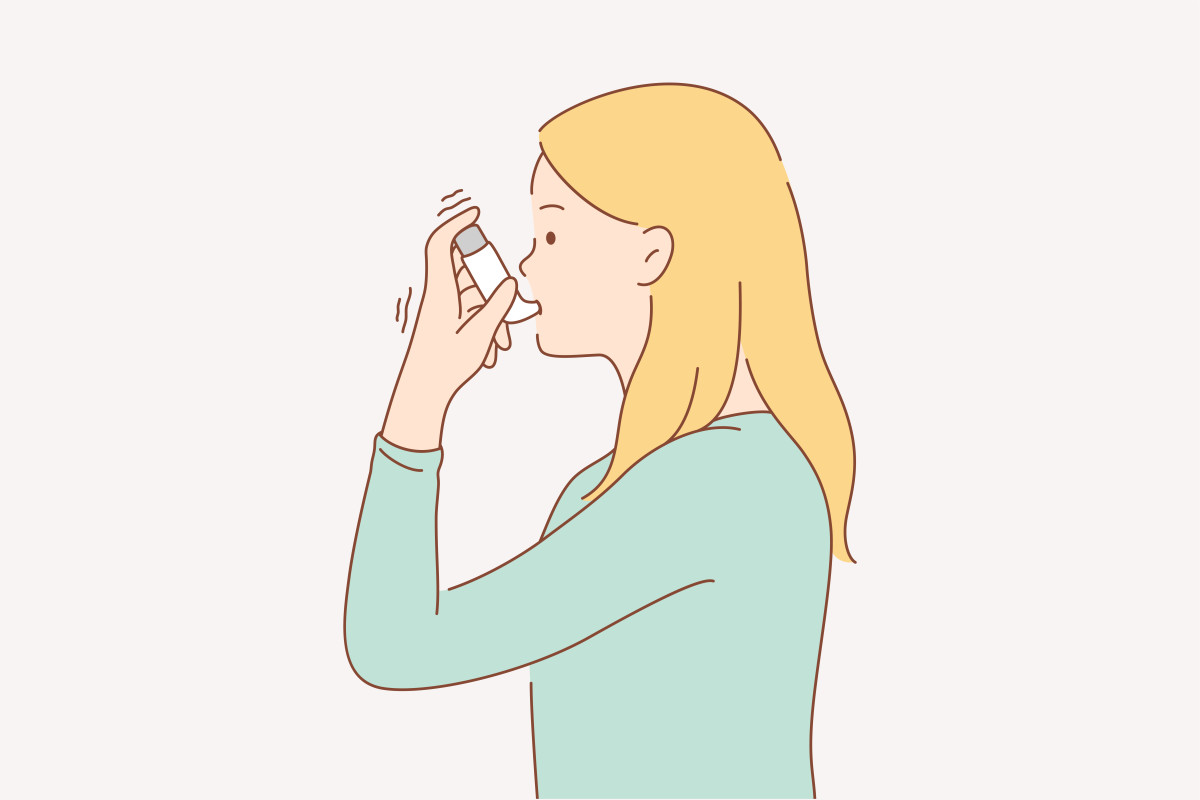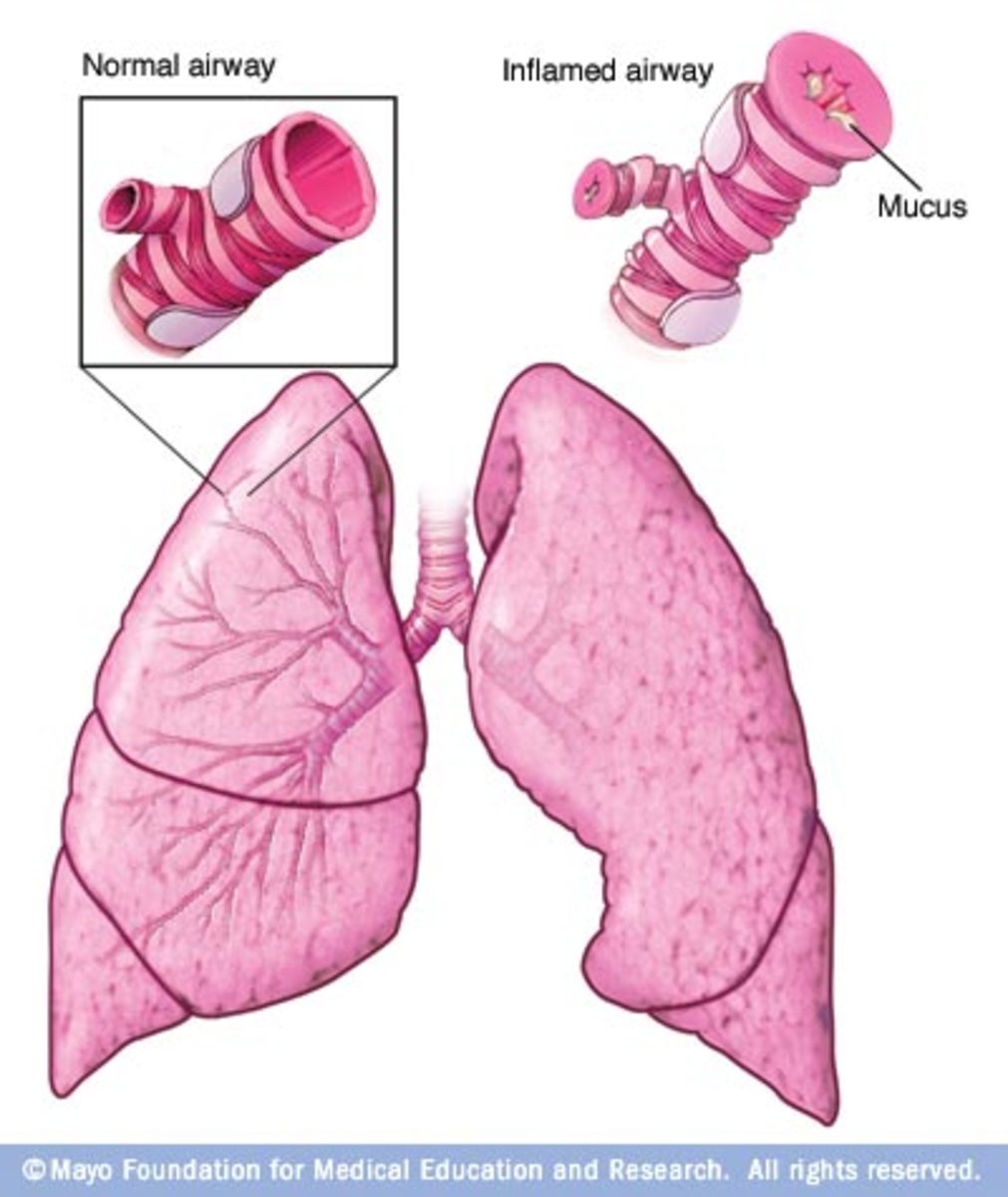How to manage asthma attack
Not being able to breathe can be very frightening, especially for those who have asthma. Sometimes anxiety can cause even more rapid and shallower breathing that can aggravate asthma and interfere with your inhaler.
Here are some tips to control the anxiety that sometimes accompanies an asthma attack.
- Sit down and drink a glass of water or other flavored drink. It can distract you and slow down your breathing.
- Breathing exercises can help you control your breathing. Sit down and take a long, slow, deep breath. At the same time, push on your upper abdomen with your hands folded. Let the air out slowly with your lips “puckered.” Keep your lips almost completely closed to cause resistance. Do this exercise approximately three times. Once your breathing is slowed down, your inhaler is likely to be more effective.
Using inhalers
Many asthma sufferers get relief with inhalers. There are two major types, steroidal and bronchial dilators.
- The steroidal inhalers reduce the sensitivity of the airways so they will be less likely to react to allergies such as mold and dust mites.
- The bronchial dilators reduce swelling almost immediately so air can be drawn into the lungs. Some doctors prescribe one or both of these. Follow your doctor’s directions, and read the label on your medicine. Eighty-two percent of people admitted to the hospital due to severe asthma did not use their medicine correctly.
Cleaning tips to asthma-proof your home
- Wash your walls and woodwork with a diluted chlorine bleach solution. This should remove microscopic molds. Wear a breathing mask while you do this.
- Filter your inside air. Air cleaners can remove some asthma-triggering microscopic particles from the air.
- Use a built-in vacuum cleaning system. It releases less dust into the air.









